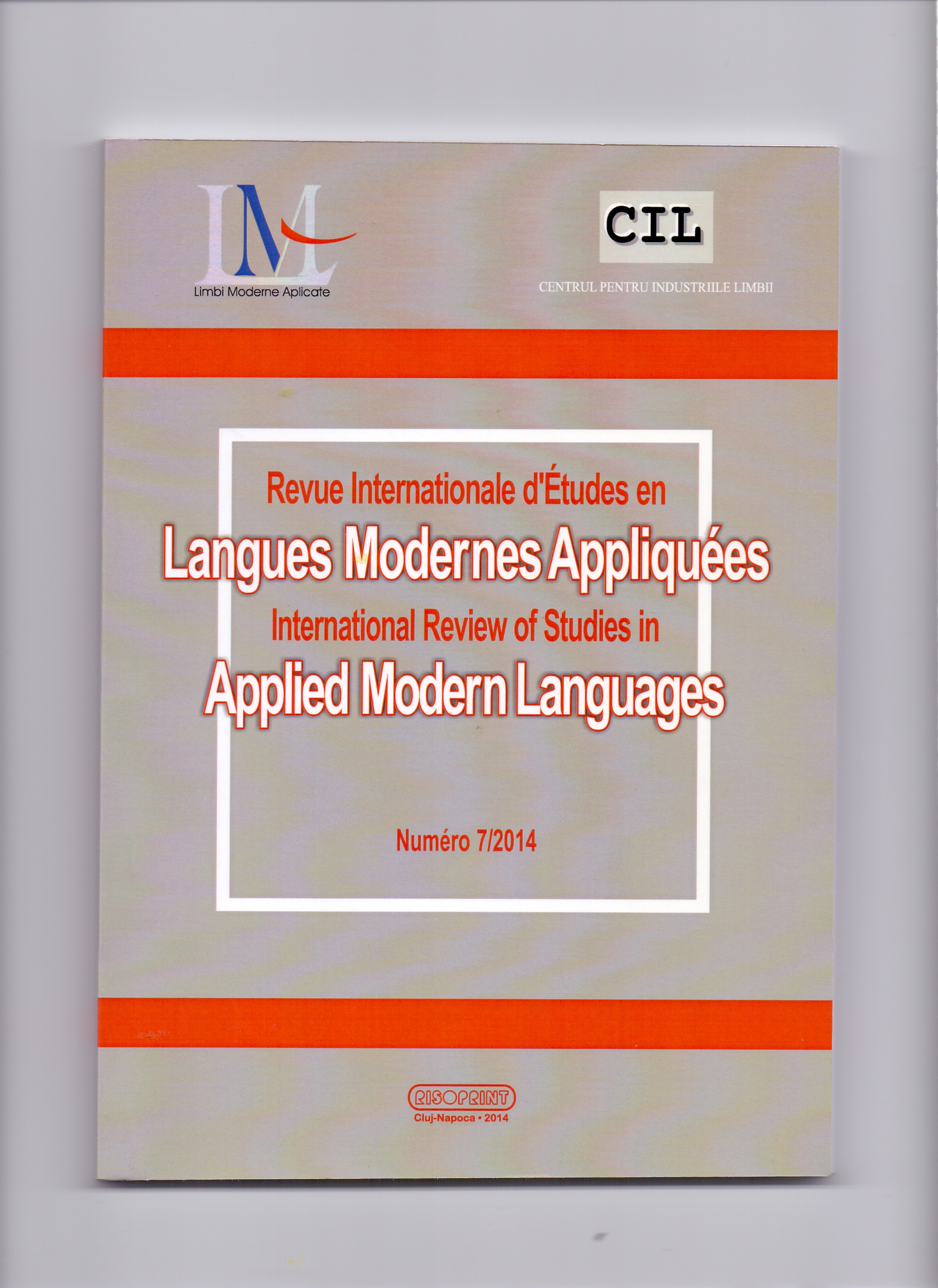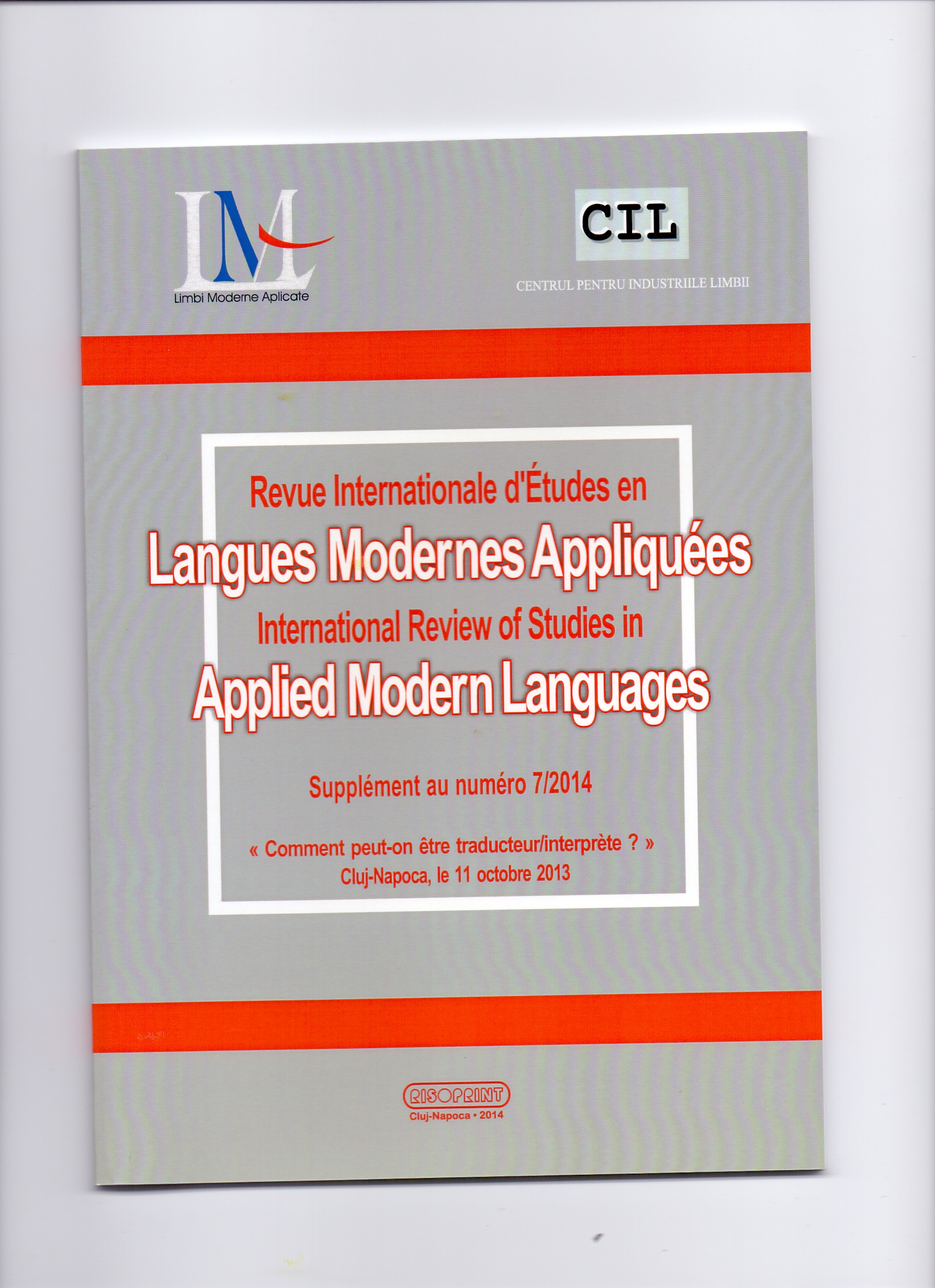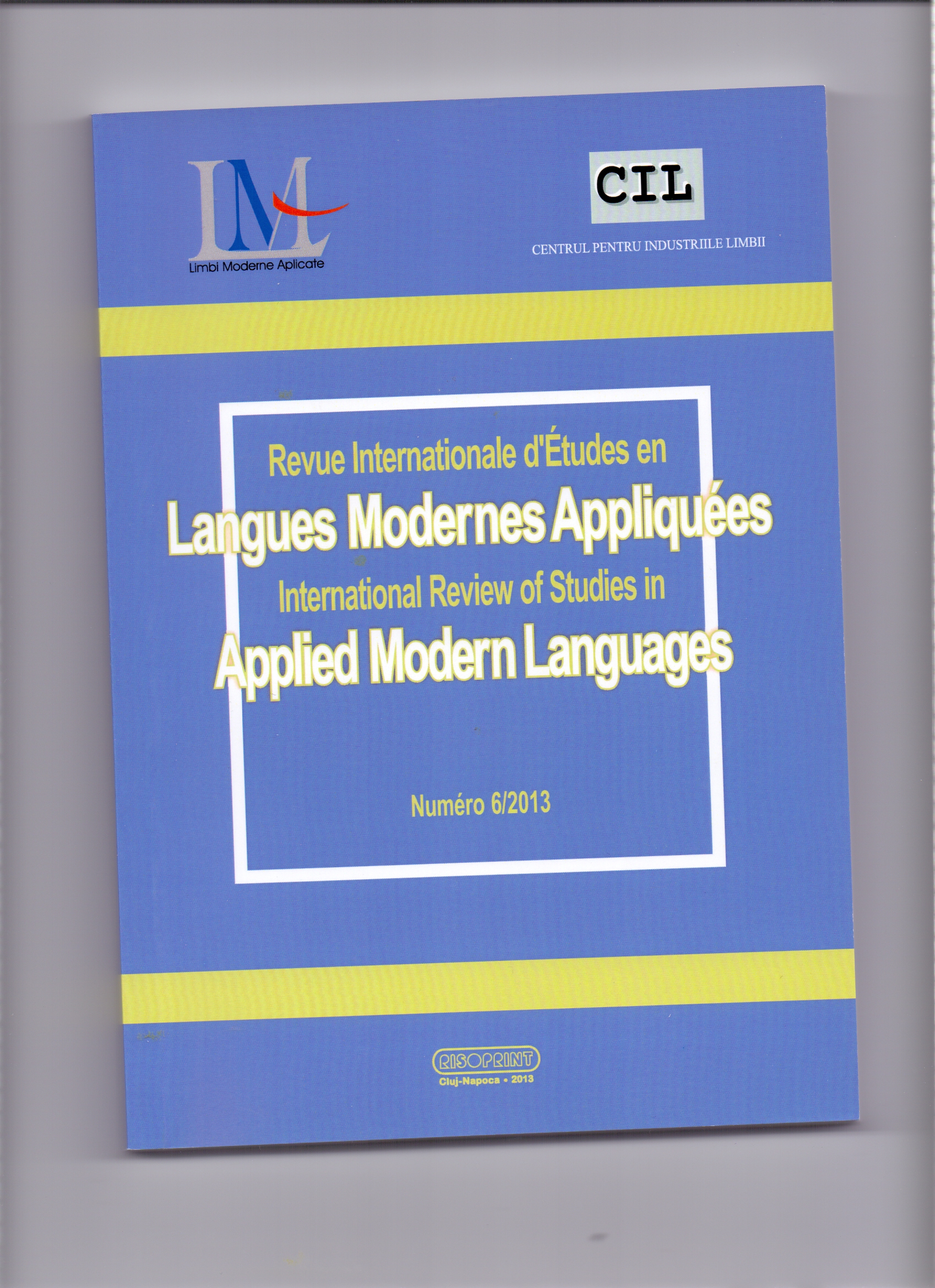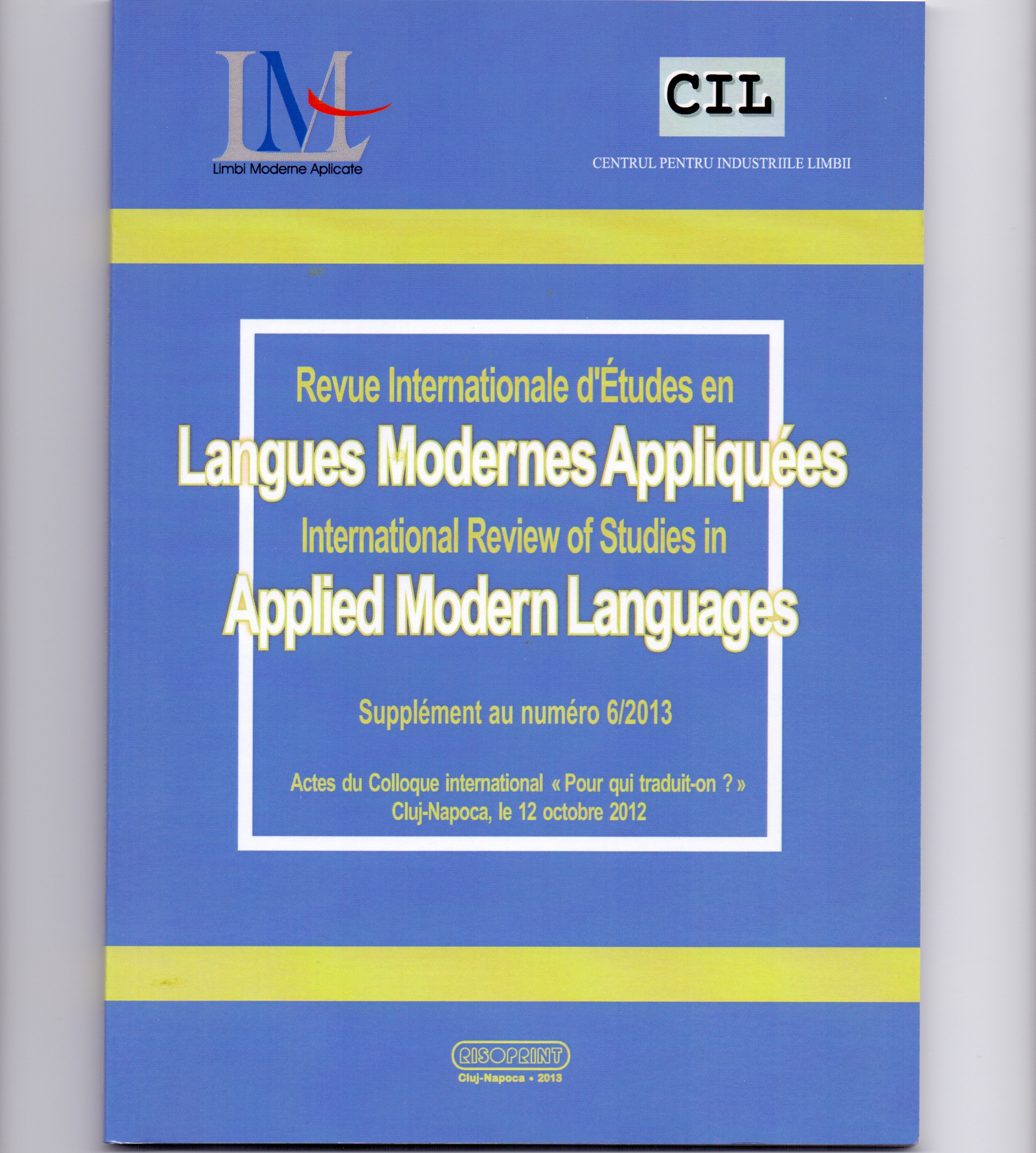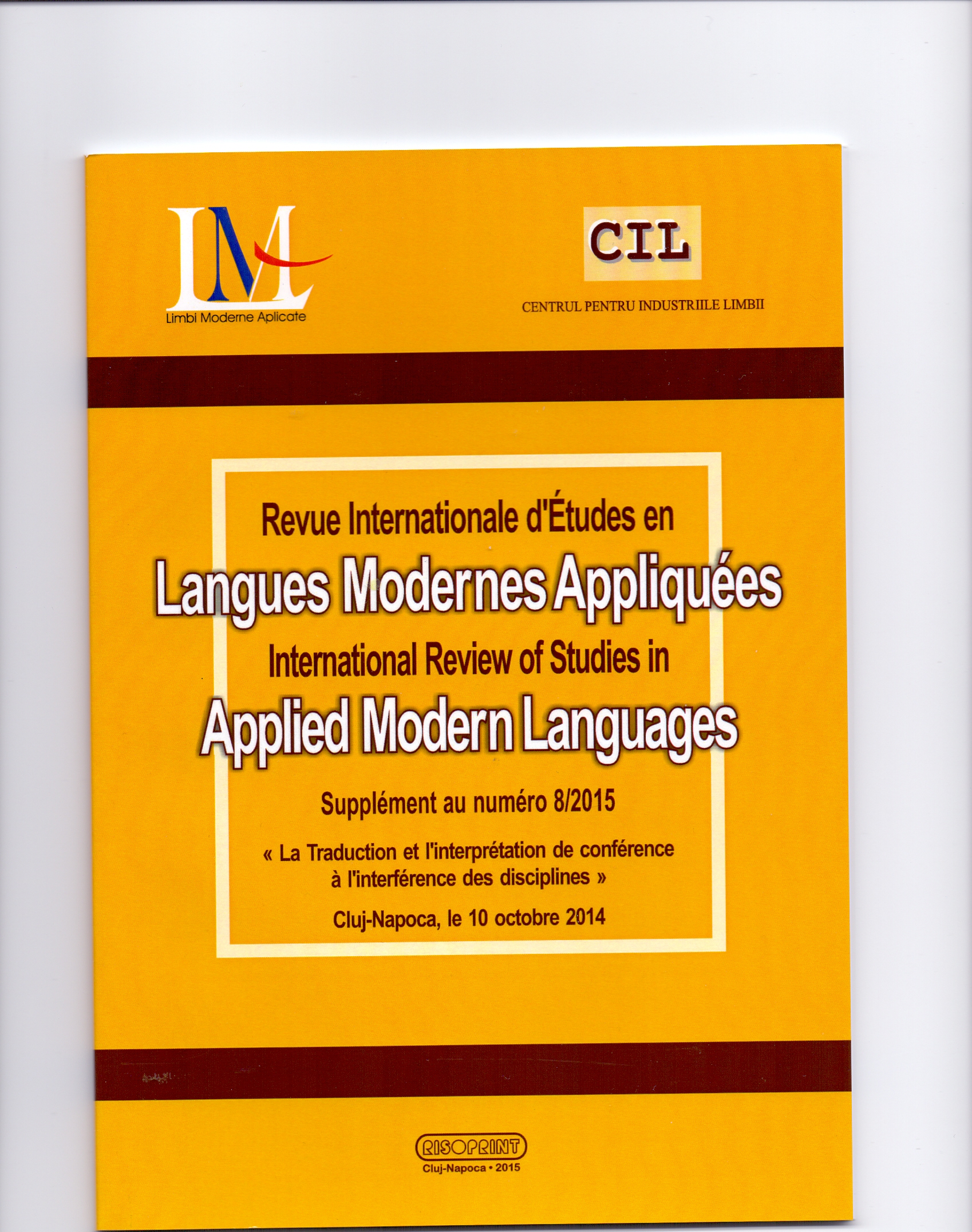
Le discours traductologique actuel : nouvelles directions et approches de l’autotraduction littéraire
This article aims to provide a short overview of translation ideas and of some key works on literary self-translation, which are nonetheless sporadic. We start by pointing out that the very limited interest in this type of translation has often represented a topos of various translation discourses and we also explore the possible explanations for this quasi-absence of theoretical contributions in this field. Then, we focus on the new approaches to self-translation and the turning point represented by the past three decades. Finally, we try to establish an inventory of the most recent works on auctorial translation.
More...
